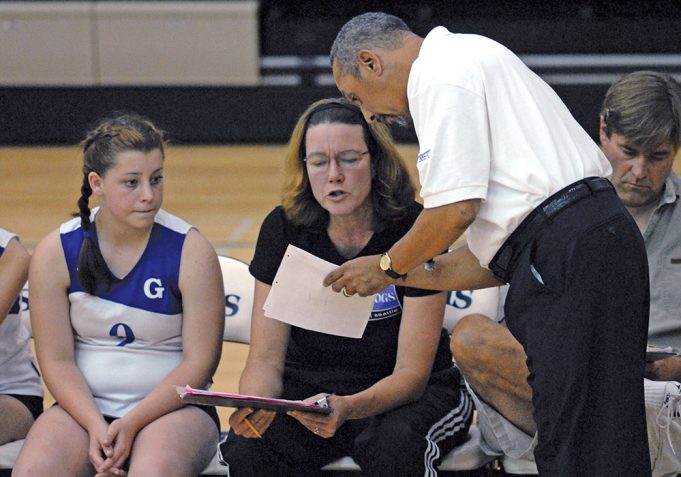Confidence is not a suggestion when it comes to being good in this avocation. It is at the core of what it takes to be a good official in any sport at any level.
Rarely will you see timid officials succeed. Experiences and knowledge help create that confidence. As officials get more comfortable, they acquire a bit of an edge. It’s a natural progression.
However, that edginess can quickly turn into arrogance, which can be a big turn off to the people you work with and for. So how do you toe the line?
Walk the talk.
If you are going to carry yourself as if you know it all, have the knowledge to back it up. There are plenty of people who think they know rules, mechanics and philosophies in their sport. Know them and how to apply them.
Knowledge helps to create legitimate confidence that surpasses the qualities of the arrogant. You can only sweet talk your way through situations for so long without actually knowing before the people around you catch on.
Listen.
A really quick way to show you care about anyone other than yourself is to stop talking. Just listen. You may have more experience than anyone in the room but that doesn’t mean you can’t learn something new.
Even if your partners have nothing to offer you, listening goes a long way in establishing crewness with the person or people you are working with.
When it comes to building rapport with coaches, sometimes all they want and need is for you to listen. Not every interaction with a coach has to be a give-and-take. Sometimes the message is subtle. If you don’t listen, you’ll miss it. And the next time the coach may not be as helpful.
Know your audience.
There are new officials who want to learn everything they possibly can from you. There are officials who are perfectly content with where they are and don’t particularly care what you have to say. That’s OK! Don’t waste your time and energy forcing your knowledge on people who don’t want to hear it.
You can easily tell if someone is engaged through their body language and response to what you are saying. Talking to a partner or coach who doesn’t want to listen is a sure way to make them feel that you think you are better than they are whether you mean to or not.
Learn from mistakes.
Perfection is unattainable, yet we continue to pursue it. Knowing when you’re wrong is important, but accepting when you’re wrong is the difference maker. Don’t be a repeat offender!
If you can help someone learn from something you did wrong, you are helping the entire officiating community get one step closer to that, albeit unattainable, goal of perfection.
Be yourself.
Nobody wants to be known as “that official.” You know the one, the know-it-all, Mr. or Ms. Perfect, the one whose ego can’t fit in the locker room or the official who can’t stop talking about how great he or she is.
Just as officials can suffer because they don’t have enough belief in themselves, others pay the price for having too much, or worse, the wrong kind of belief in themselves. There’s a huge difference between having a rock-solid ego and being obnoxiously arrogant. Ironically, it’s often the folks who try to come off as know-it-alls who really have the most self-doubt.
The reality is every person has a unique set of qualities they bring to the game and their crew (if applicable). Trying to be someone you’re not will quickly catch up with you.
Use your confidence wisely.
It’s important to manage that confidence and use it for the good of the game. Remember that what you do is louder than what you say. Don’t let your confidence turn in to cockiness.
What's Your Call? Leave a Comment:
Note: This article is archival in nature. Rules, interpretations, mechanics, philosophies and other information may or may not be correct for the current year.
This article is the copyright of ©Referee Enterprises, Inc., and may not be republished in whole or in part online, in print or in any capacity without expressed written permission from Referee. The article is made available for educational use by individuals.


















